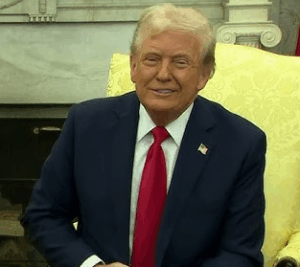Beijing softens its approach to negotiations, aware of the economic toll on both nations from the ongoing trade disputes.
China and U.S. Begin Trade Talks Amidst Tensions

China and U.S. Begin Trade Talks Amidst Tensions
China agrees to discuss trade with the U.S. in a move to portray responsibility while maintaining a hard stance.
China has taken a surprising step towards negotiations with the Trump administration regarding ongoing trade tensions, a move interpreted as a display of responsibility within a high-stakes international landscape. For weeks, Chinese authorities had firmly resisted engaging in talks, emphasizing their refusal to negotiate under pressure while criticizing the U.S. for a perceived bullying approach. They had insisted that the U.S. must first alleviate its substantial tariffs before considering dialogue.
However, as per recent developments, China announced that its leading trade official, He Lifeng, will meet with U.S. Treasury Secretary Scott Bessent this week in Switzerland. While announcing this meeting, Chinese officials have underscored that their cooperation should not be interpreted as an acceptance of U.S. coercion, warning Washington against treating these discussions as mere cover for continued pressure tactics.
The decision to engage in talks comes as the Chinese government expressed its intention to account for global expectations and the interests of American businesses and consumers, indicating that the motivations are not solely about rectifying relations but also about addressing broader economic impacts.
Analysts note that while this represents a shift in China's previously rigid stance, the messaging remains tough and assertive—implying that the U.S. must handle the negotiations with care. Yun Sun, an expert at the Stimson Center, commented on this duality: "China is trying to frame itself as the responsible party, but it’s still a pretty hard-line tone: You better behave yourself in these talks."
This change of heart arises amid signs of economic strain in both the U.S. and China due to the intensifying trade dispute, which has raised concerns regarding a potential recession. As both countries navigate this complex situation, the upcoming discussions in Switzerland will be pivotal, not only for their respective economies but also for global market stability.
However, as per recent developments, China announced that its leading trade official, He Lifeng, will meet with U.S. Treasury Secretary Scott Bessent this week in Switzerland. While announcing this meeting, Chinese officials have underscored that their cooperation should not be interpreted as an acceptance of U.S. coercion, warning Washington against treating these discussions as mere cover for continued pressure tactics.
The decision to engage in talks comes as the Chinese government expressed its intention to account for global expectations and the interests of American businesses and consumers, indicating that the motivations are not solely about rectifying relations but also about addressing broader economic impacts.
Analysts note that while this represents a shift in China's previously rigid stance, the messaging remains tough and assertive—implying that the U.S. must handle the negotiations with care. Yun Sun, an expert at the Stimson Center, commented on this duality: "China is trying to frame itself as the responsible party, but it’s still a pretty hard-line tone: You better behave yourself in these talks."
This change of heart arises amid signs of economic strain in both the U.S. and China due to the intensifying trade dispute, which has raised concerns regarding a potential recession. As both countries navigate this complex situation, the upcoming discussions in Switzerland will be pivotal, not only for their respective economies but also for global market stability.





















